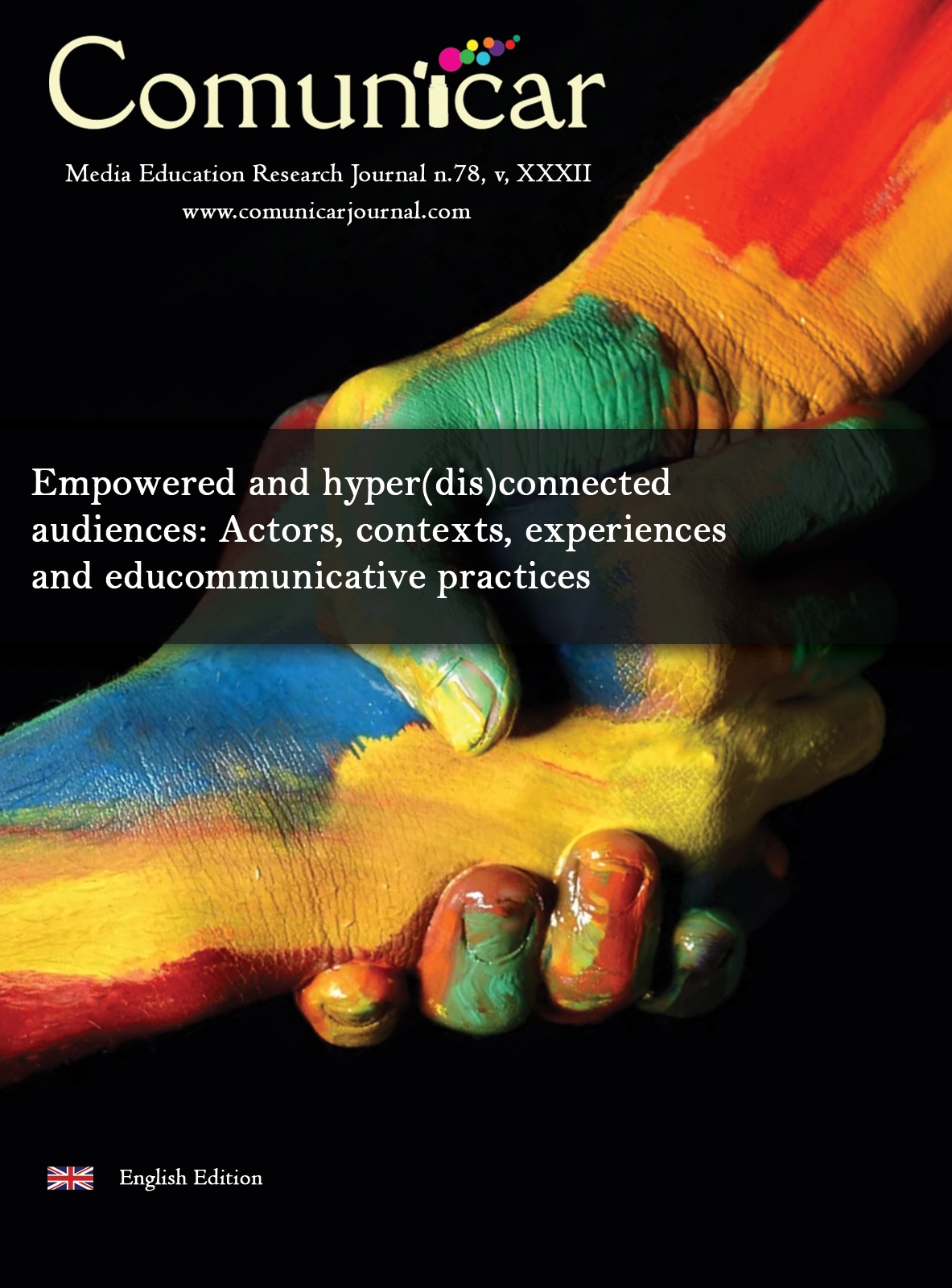青年人和成年人的COVID-19信息大流行:支持批判性媒体素养
IF 5.1
1区 文学
Q1 COMMUNICATION
引用次数: 0
摘要
2019冠状病毒病大流行使公共领域充斥着大量信息,产生了一些专家所谓的“信息大流行”。在用来减轻信息流行病影响的机制中,批判性媒体素养已被证明是一种有价值的方法。本研究旨在分析青少年和成人的关键媒体技能(CMS)与信息认知(IPA)、信息与健康(ISW)、情绪反应(ERI)和媒体信任(MTC)变量的关系。在2021年的第一个学期,在墨西哥的两个虚拟社区进行了一项有404名参与者(Mage=32.8)的横断面在线研究。描述性分析揭示了参与者高度关键的媒体技能。成年人表现出高水平的IPA,而年轻人表现出高水平的ISW、ERI和MTC。按年龄组观察,CMS与ISW、CMS与MCT之间存在相关性,而CMS与IPA之间无相关性。2019冠状病毒病疫情加剧了数字媒体的消费和不可信信息的获取。批判性媒体素养可以通过加强对媒体话语的批判性角色和态度来保护个人免受信息学术的风险。这项研究支持了关于促进媒介素养倡议的建议,这些倡议将培养关键的媒介技能作为对抗健康危机中错误信息的机制。本文章由计算机程序翻译,如有差异,请以英文原文为准。
The COVID-19 infodemic among young people and adults: The support of critical media literacy
The COVID-19 pandemic has flooded the public sphere with large amounts of information, engendering what some specialists have dubbed the infodemic. Among the mechanisms used to mitigate the effects of the infodemic, critical media literacy has proven a valuable approach. This study aimed to analyze the critical media skills (CMS) of young people and adults in relation to the variables of infodemic awareness (IPA), infodemic and wellbeing (ISW), emotional reaction (ERI), and media trust (MTC). A cross-sectional online study with 404 participants (Mage=32.8) was conducted in two virtual communities in Mexico during the first semester of 2021. Descriptive analysis revealed highly critical media skills in participants. Adults showed high levels of IPA, while young people presented high levels of ISW, ERI, and MTC. Observations by the age group indicated an association between CMS and ISW, and CMS and MCT, while the association between CMS and IPA was null. The COVID-19 outbreak has intensified the consumption of digital media and access to untrustworthy information. Critical media literacy may protect individuals from the risks of infodemic by enhancing critical roles and attitudes toward media discourse. This study supports the recommendation to promote media literacy initiatives that inoculate critical media skills as mechanisms to counteract the misinformation in health crises.
求助全文
通过发布文献求助,成功后即可免费获取论文全文。
去求助
来源期刊

Comunicar
Multiple-
CiteScore
10.10
自引率
5.40%
发文量
40
审稿时长
20 weeks
期刊介绍:
Comunicar specialized in educommunication: communication and education, ICT, audiences, new languages...; monographs specialized in current issues. Double format: printed and online; digitally, accessible in full text, free of charge, for the entire scientific community and researchers around the world. Coeditions printed in Spanish and English for the whole world. Published by Oxbridge Publishing House which collaborates with many international centres and universities.
 求助内容:
求助内容: 应助结果提醒方式:
应助结果提醒方式:


